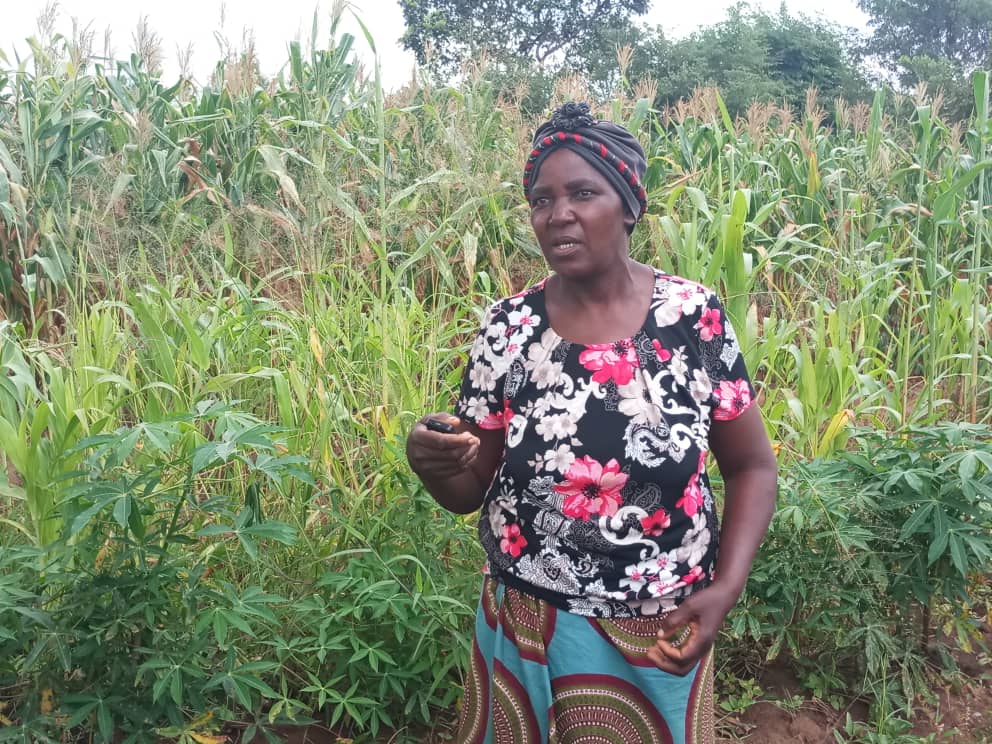According to the 2018 State of food and agriculture report published by the Food and Agriculture Organization (FAO), globally women make up about 43 percent of the agricultural labor force worldwide, and in some countries like Zambia, women make up 80 percent of all farmers.
In addition to participating in farming, most women particularly in rural areas in Zambia are also major actors in seed saving, animal husbandry, grain processing, and other tasks related to growing food. This is in addition to cooking, cleaning, and taking care of sick elders and children. It is women farmers who produce the food that families eat. While male farmers often focus on growing commodity crops like maize, rice, and soybeans, women raise, vegetables, and small livestock that nourish families each day.
Thus, women make significant contributions to agricultural production, rural economies, food security and nutrition, land and natural resource management; and building resilience to climate change. Beyond their contribution to food production and nutrition for their families, women engaged in agriculture use it not only as a source of livelihood but also contribute towards a healthier and more resilient environment. Examples range from of women in Chongwe District engaging in crop diversity through climate-adaptive irrigation strategies, to women dairy farmers in Kafue district starting a co-operative to pay for their children’s health care and education.
While women are the majority of the Zambia’s smallholder farmers, their contributions are at best largely unnoticed and at worst almost universally ignored. Women do not have equal access to resources land, credit, education, extension services etc. This lack of women’s empowerment increases maternal under-nutrition, and limits women’s ability to practice positive care behaviors, such as providing sufficient and nutritious complementary foods. Therefore, to achieve food and nutrition security for all people, food assistance policies and programs must create conditions that advance, rather than undermine, gender equality and women’s empowerment. To achieve this, women need the same access to land, education, and inputs that men currently are offered. According to FAO, globally, if resources were available, women’s food production capacity would be increased by 20 to 30 percent and lift as many as 150 million people out of hunger and food insecurity. With about 815 million people going hungry worldwide, that’s no small number.
Hivos Southern Africa is working with women in Zambia through various initiatives and making monumental change in the food system. An important aspect that has been taken by the Sustainable Diets for All (S4ALL) program is to promote production and consumption of traditional foods. This is because food is as important to a culture as language. Not only is it a tool for communication, and a source of social engagement, it is a platform for human expression. It embodies our Zambian culture and ought to be preserved for future generations to not only enjoy its nutrition but to understand our rich culture. Understanding the culture of our traditional food means equally understanding Zambia’s culture around women’s role in food systems in Zambia.
Thus, the Hivos SD4ALL program in collaboration with International Institute for Environment and Development (IIED) published a Food Values Book themed: Celebrating local food value and diversity. The book celebrates Zambian traditional foods and adds knowledge of the nutritional value contained in these foods. Additionally, the crops celebrated are crops that are adapted to the Zambian climate and therefore can be used as in climate change mitigation and adaptation strategies.
Hivos works with like-minded Civil Society Organizations such as the Zambia Alliance of Women, Civil Society for Poverty Reduction, Civil Society Organizations-Scaling up Nutrition (CSO-SUN), Consumer Unity Trust Society (CUTS) and Alliance for Zambia Informal Economy Association (AZIEA). These partners together work to promote production and consumption of sustainable diets as it is a multiform phenomenon.
Ms. Chimya, the Executive Director of the Zambia Alliance of Women (ZAW) acknowledges the important role played by various actors but suggests that policymakers, community leaders, and elders need to value the work of women and youth as priority. Not only are the women farmers and food producers but they are nutritional gatekeepers, caretakers of rich agricultural traditions, and stewards of the land and biodiversity. Thus, the empowerment of women makes policy interventions more nutrition sensitive.
For Ms. Chimya, the process of women’s empowerment must be supported more vigorously adding that gender equality is fundamental to justice, and it is fundamental to nutrition.
Recognizing the role of women in agriculture and providing concrete solutions to eliminating hunger and malnutrition, stopping food loss and food waste, promoting nutrient-dense and indigenous crops, and realizing the vision of a more equitable food system will all lead to a healthy nation.
Therefore, creating a more sustainable food system means not only acknowledging women’s pivotal role in nourishing the planet, but also uplifting women in their current efforts and potential to be pioneers of change.
The author: Sustainable Diets For All (SD4ALL) Program Team, Hivos Southern Africa. SD4ALL is a lobby and advocacy program that is currently working on policies and plans that support diverse food production and consumption while acknowledging the role of women in the food system.




